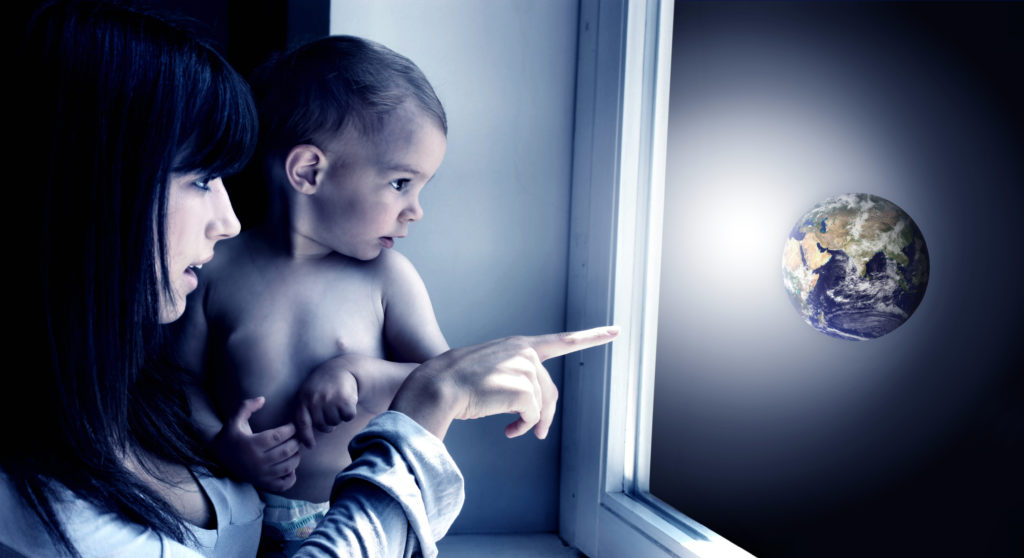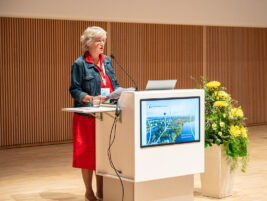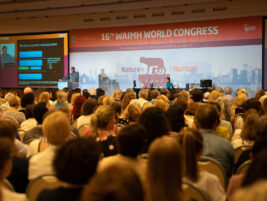WAIMH Loses A Compassionate, Strong And Far-Reaching Leader
MEMORIES: By Bob Emde, Tuula Tamminen, and Pia Risholm Motander
As we learned of Peter’s death, occurring after his lengthy illness, and with family in Sweden, we wanted to share some memories of our dear friend and pioneer in our field. As is well known, Peter not only served on our Board for many years, but he also organized and hosted two of our World Congresses (Stockholm in 1986 and Amsterdam in 2002) and served as our President from 2000 to 2003). Before his illness, we always counted on his worldly and organizational perspectives and on his presence in WAIMH, sometimes taciturn and seemingly stern, but more typically soft and available to his wide network of friends who also treasured his playfulness, and remarkable sense of humor.
Peter was born in the Netherlands, but was fluent in at least 4 languages that we know of –Dutch, French, Swedish and English. He received his MD from the U. of Leyden, where he also trained in pediatrics and later in child psychiatry, receiving some of this training in Sweden where he spent most of his career. He served initially as Associate Professor of Pediatrics at the U. of Umea and was affiliated with the Karolinska Institute. He returned to Sweden for the latter part of his career after a period as the Chair of the Department of Child Psychiatry from 1989-2002 at the U. of Nijmegen.

contributed by Hiram
Fitzgerald.
Memories from Bob Emde
At this point I share some of my personal memories. At the origins of WAIMH, during the heady days of the Frontiers of Infant Psychiatry and at the first Congresses at Caicais, Portugal and Cannes, France, Peter came on the scene as a young passionate clinician. He was part of a new wave in the field of pediatrics, bent on humanizing newborn nurseries for babies, mothers and their families. In his early studies, in which he encouraged early skin-to-skin contacts, breast feeding and other continuous intimate interactions, he was part of an exciting small group who were stirring things up. These included Marshall Klaus, John Kennel, T. Berry Brazelton and others who were recognizing the adaptive and mental health needs of newborn infants and their parents and they were making changes in hospital practices so as to improve loving relationships going forward. During those days, I was involved in the emerging leadership in the precursor organization of WAIMH, then known as WAIP (the World Association of Infant Psychiatry) and a group of us decided, over drinks, that we needed to expand the name to go beyond psychiatry since we were much more; we therefore decided at least to include “Allied Disciplines” in the name. That evening, we organized a voting block that would argue for such, propose it and vote (as a sort of surprise cabal) during the upcoming business meeting. Peter, the passionate pediatrician, was a major force for this and spoke up at the business meeting (as part of a group that included Joy Osofsky, Dan Stern, Tom Anders, Tiffany Field, among others). WAIP as a result became WAIPAD and began an expanding role across disciplines and countries that eventually evolved into WAIMH. Peter played a huge part in this early transformation.
A cascade of other memories, more personal, and fun-filled, also come forward. These include walks, joking, but also sharing our visions and experiences, touring together in many cities that were new to us, and planning and relaxing with WAIPAD and WAIMH colleagues. I recall a fabulous crayfish-time party at Viveka and Peter’s house near Stockholm when, after much toasting and hilarity, we waded into the edge of the Baltic with James Anthony (c. 1985). I remember after-work tours of sheep-herding ranches and wineries near Melbourne (c. 2003), of being introduced to the joys of watching tournament tennis by Peter at the Australian Open (and I also remember Peter unsuccessfully trying to calm some overzealous and noisy Swedish tennis fans cheering nearby). I recall that after presenting most of the day for the 1992 Scandanavian Mental Health Lectures in Stockholm, Peter’s colleagues awarded me a modern colorful glass figure with a hollowed out cranial cavity. Exhausted, I laughed and voiced that I knew some of what I said must have seemed “empty-headed”. No, they said, the hollowed cranium was to indicate “an open mind”. I continue to value that piece in my study, done by the artist Ulrika Vallien, and think of Peter often.
I will share two other memories of Peter among many more. The first illustrates the remarkable planning skills and thoughtfulness he had. After the Stockholm Congress, he organized a sailing trip on a private yacht in which, a cardiologist colleague and his wife, expert skippers and navigators, led three other couples of us (Berry and Chrissy Brazelton, Peter and Viveka, Joyce and I) on a multiple day voyage through the incredible hundreds of islands of the Stockholm Baltic archipelago. We slept on the boat, swam and enjoyed ourselves thoroughly. We joked about sailing to Finland, or at least to the Aland islands, but the Swedish drinking ferries deterred us.
A final memory evokes some other aspects of Peter. When in 1996 I visited him, consulting with his department in Nijmegen, I have a vivid memory of being with Peter in his house there. Due to circumstances then, it was necessary for him to live alone most of the time, commuting on occasion to his family in Sweden. A first surprise for me, was to learn that Peter was a chef. He spent much of his leisure time from his department assisting a major chef in town, and he prepared a favorite meal for me at his house from fresh ingredients we purchased together in the market. I then came to see that his sensitivities were not only gustatory, but profoundly aesthetic. While relaxing in his living room, we looked out through his picture window into the beyond of a vast open field at sunset as he explained how much that view meant to him; it was unusual in Holland. And as we filled our minds with the moments, we listened to the Adagietto of Mahler’s 5thsymphony. I can hear it and see it now. … I imagine him thus.
Memories from Tuula Tamminen
Professor Peter de Chateau was well respected in medical field in Scandinavia, especially in Finland. Here child psychiatry has been an independent medical specialty ever since 1950 but sometimes it has been considered as soft science with all its psychosocial aspects and mental processes. Pediatrics has always been in the heart of hard science and Peter, who had a professorship in both specialties, was an exception who could widely promote infant mental health. Also, Peter succeeded to be both a real Scandinavian citizen and yet, at the same time an international person; therefore medical doctors in our northern countries listened to him.
I started my dissertation research on mother’s pre- and postnatal depression, breastfeeding and early interaction in 1984. I was very motivated to study and videotape mothers and infants but I could not find any infant specialist in Finland to advise me. I had two supervisors, a professor of pediatrics and a professor of adult psychiatry, both wise men, but no-one helping me to understand early interaction. When I participated in WAIPAD’s Stockholm congress in 1986 I felt I had found my professional secure base. Of course, I met Peter there and ever since he helped me with my research. In addition, he knew how to talk with both of my supervisors and how to convince them. So, Peter helped me to start the field of infant mental health in Finland.
Over the years Peter had many tasks and roles in WAIPAD and WAIMH, and again he supported me to meet colleagues around the world. As a Regional Vice-President he taught me to collaborate with Scandinavian and European infant mental health specialists from very different fields. He did all this in a simple, warm and plain way making everyone feel quite comfortable. I remember an occasion when WAIMH had to have an extra Board Meeting on short notice in New York and I informed him that I was unable to participate because I was lecturing in the same day in Tokyo. Peter phoned me and said that I should come and that there was a need to have European Board Members at the meeting. Peter ended the phone call by saying that he trusted that I will come. Indeed, my travel agency found a flight from Tokyo to New York over the Pacific Ocean, so that I arrived at New York two hours before I had left Tokyo. We did have a wonderful board meeting that had impact on WAIMH for several years afterwards.
I also recall that, after one of the many meetings we had in different parts of the world, Peter and I sat together and had a long discussion privately. Peter told me about traumas of his childhood family and himself as a child during and after the World War II. He talked so openly, warmly and with such wisdom that I will remember this discussion until the end of my time. Later on when I met Peter’s wife Viveka, I also came to admire and respect her strength as well.

Minna Sorsa.
Memories from Pia Risholm Motander
To me, representing infant mental health specialists in Sweden, the most important contribution of Peter was to bring forward the status of this field of knowledge in our country. His research on the long-lasting positive effects of early skin-to-skin contact, made in collaboration with psychologist Britt Wiberg in Umeå in the seventies, was new and quite controversial at the time. Today, when the capacity of the newborn to use somebody else’s body to support his own early psychobiological regulation is well documented in the research literature, the importance of Peter’s early work still counts. When Peter later organized the WAIPAD congress in Stockholm in 1986 he established the status of an interdisciplinary field that more clearly combined clinical knowledge with academic skills. He was a supportive person, and wanted us in Scandinavia to be connected with international research colleagues while encouraging us to take active part in infant research issues. He urged us to tell about the governmental support given to families with small children in Scandinavia and to act as missionaries and spread the message that infant families were important to society. Along these lines, he made it possible for me to become a Zero to Three Fellow (then named National Center for Clinical Infant Programs) and he acted as my mentor together with Berry Brazelton. I’m very grateful for the two fellowship training and discussion weeks that occurred then, as well as the new network of colleagues and the wider participation I could bring back to my group in Sweden. Peter also supported the creation of the Nordic Association of Infant Mental Health, bringing colleagues in Sweden, Norway and Denmark together to form the first local group to be affiliatied with WAIPAD.
When Peter left Sweden for Holland and Nijmegen, we lost an important spokesman for infant mental health in the country, but we continued to benefit from his long lasting work within WAIMH, where he always supported the Nordic countries. Peter was a very good organizer, and he was determined, but he was most of all a soft and warm person. I will miss our conversations and lunch meetings in Stockholm and elsewhere. He returned to Stockholm after his retirement and my thoughts are with Viveka, his children and grandchildren of whom he was so proud.
A Tribute to Peter de Chateau by Joy Osofsky
Peter De Chateau was a major early leader in WAIMH, previously the World Association of Infant Psychiatry and Allied Disciplines (WAIPAD) and the International Association for Infant Mental Health (IAIMH) He served as President and, for many years, was a member of the Board of Directors. Peter was a pioneer in introducing new and innovative ideas about infant mental health in Sweden, the Netherlands, and other areas of Europe. He was Head of Child Psychiatry, at the Karolinska in Stockholm from 1984-1990. He then moved to the Netherlands where he was appointed Extraordinary Professor and together with other colleagues provided the foundation for Child and Adolescent Psychiatry in the Netherlands in 1998. I had the pleasure of working closely with Peter as Program Chair when he was planning the Third World Congress for WAIPAD in Stockholm in 1986. At that time, I not only learned about Peter’s excellent organizational skills, but also his kindness, generosity and warmth. I remember enjoying a very special dinner at his home with his wife Viveca at one of the planning meetings during which he introduced me and other WAIPAD colleagues to Swedish crayfish which we all compared to Louisiana crawfish – accompanied by delicious aquavit!
It is very important that WAIMH members know about Peter de Chateau’s important contributions to infant mental health and to our understanding of the early parent-infant interaction. In the 1970’s, Peter, influenced by the work of John Kennell and Marshall Klaus, was involved in groundbreaking work related to neonatal care routines in hospitals, many of which are taken for granted today. He argued, as did Klaus and Kennell and others, notably John Bowlby and Berry Brazelton, that separation of mother and infant immediately after delivery is unnecessary from a medical point of view and can be potentially harmful to the developing relationship between parents and their infants. All of these major leaders in infant mental health proposed that much more attention needed to be paid to the neonatal period for the development of the early relationship. He was involved in early correlational studies showing that neonatal routines that were established related to more positive later outcomes. In his role as President of WAIMH, he emphasized that in the by-laws, a major goal was to facilitate international cooperation among individuals concerned with promoting conditions that contribute to optimal development of infants and the infant-caregiver relationship.
We were very fortunate to benefit from Peter de Chateau’s contributions to WAIMH and the field of infant mental health. He, like other early pioneers in child psychiatry and pediatrics, introduced new ideas that have become established principles in our field in 2015. In thinking about him, I also remember his warmth, humor and generosity, traits which are so important for this work. WAIMH has benefitted greatly from his commitment to the organization and his many contributions to the field. I feel very fortunate to have had Peter as a friend and colleague for many years.
Authors
Emde, Bob,
Tamminen, Tuula,
Risholm Mothander, Pia,
Osofsky, Joy,
United States, Finland and Sweden








